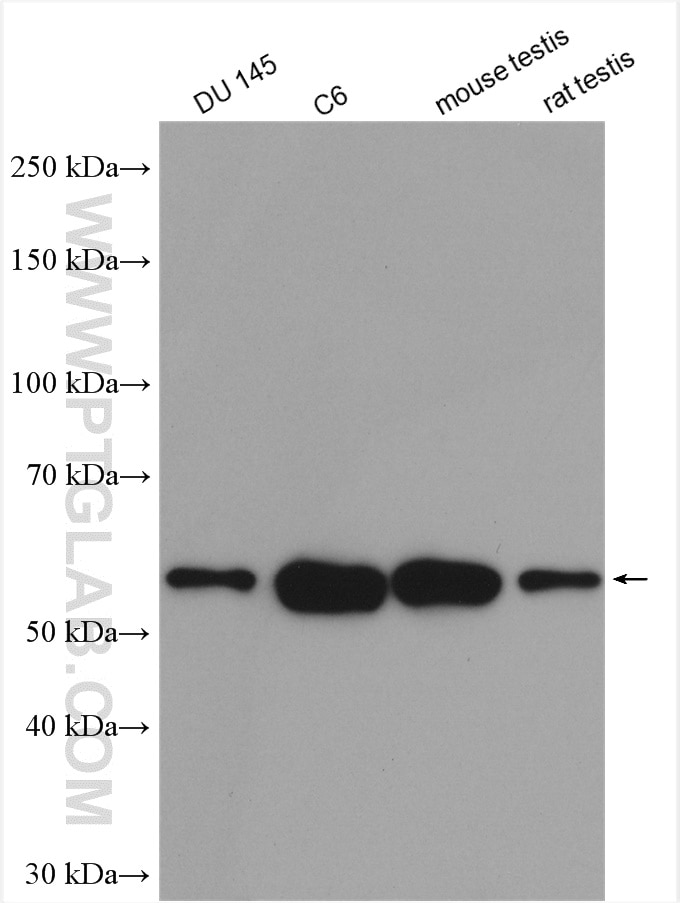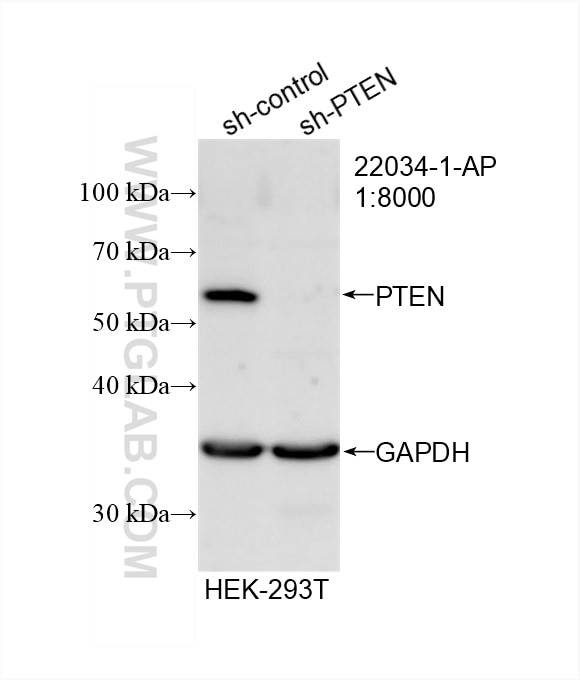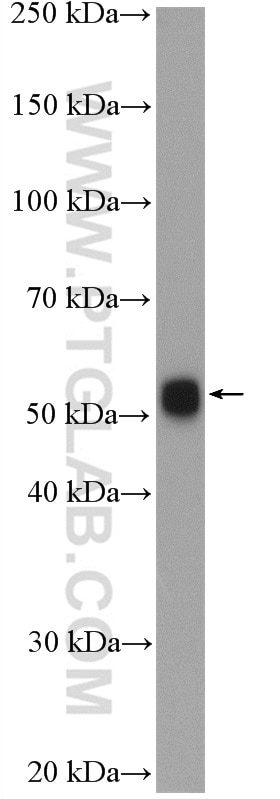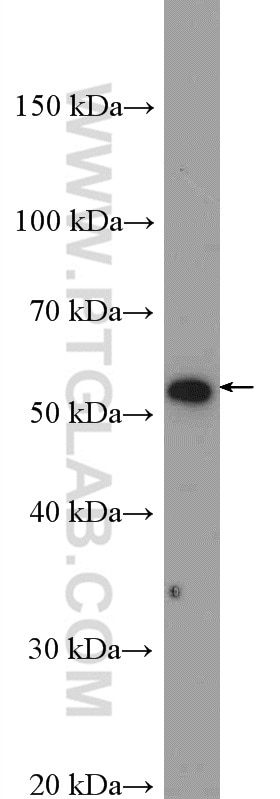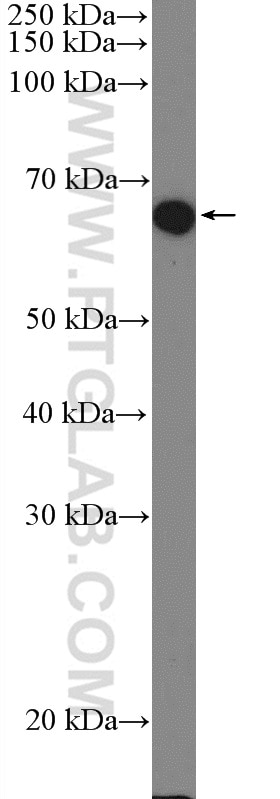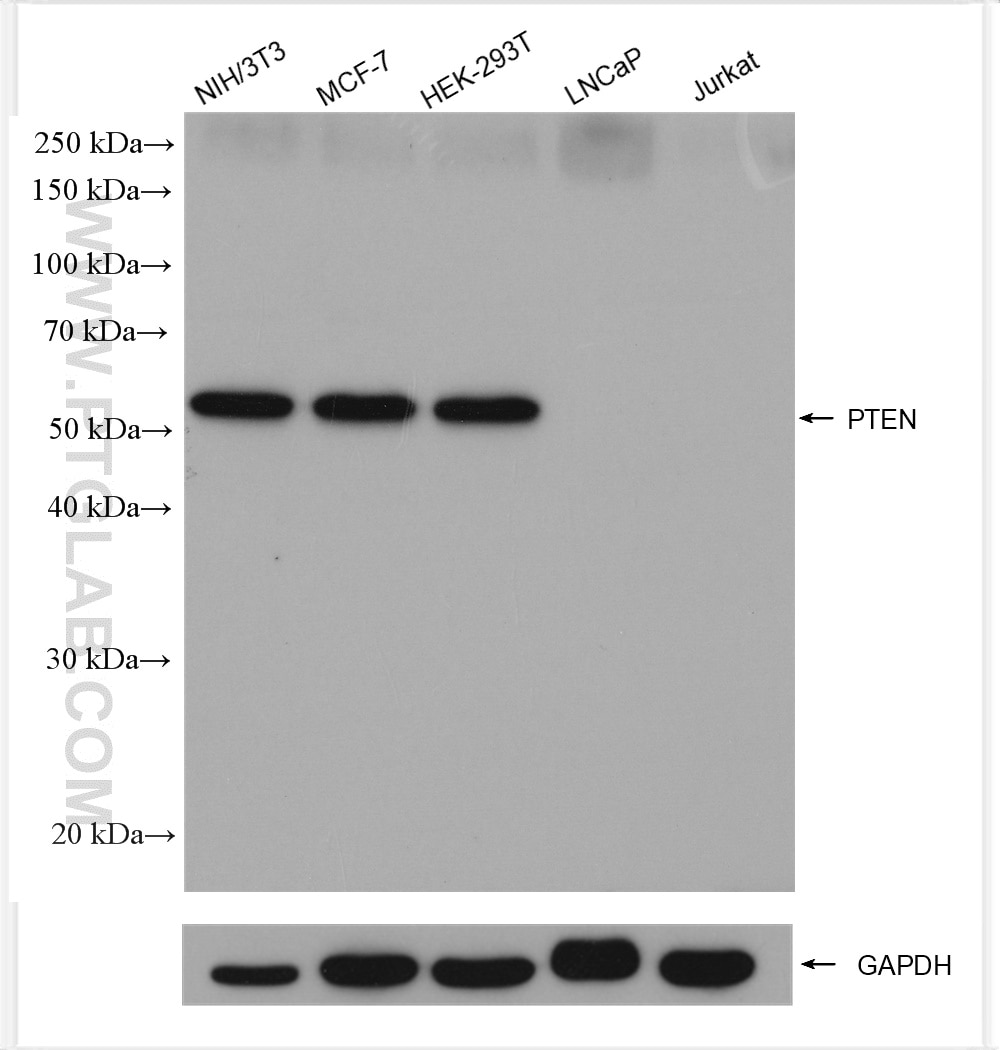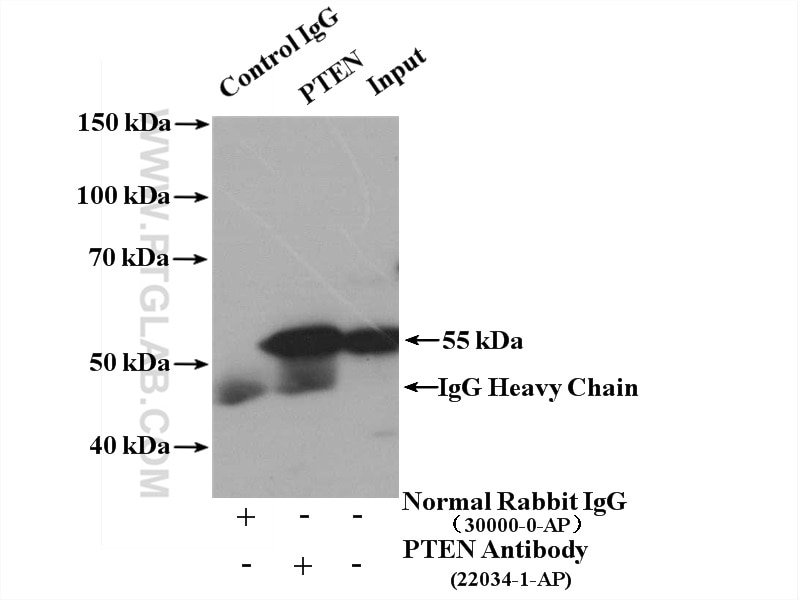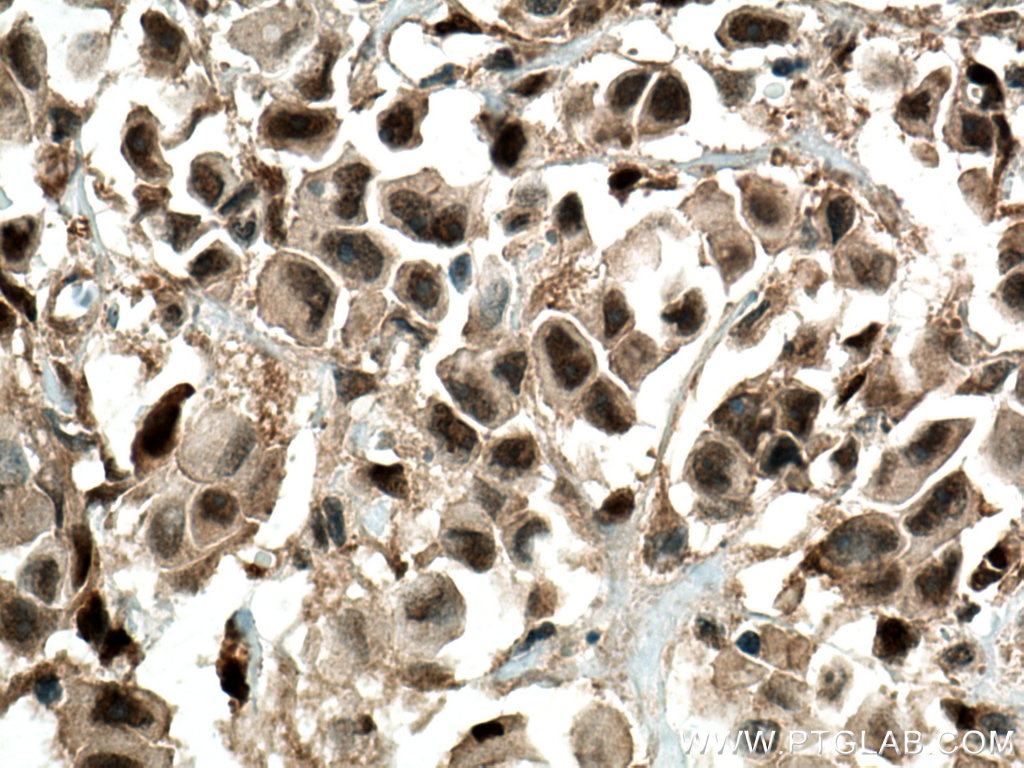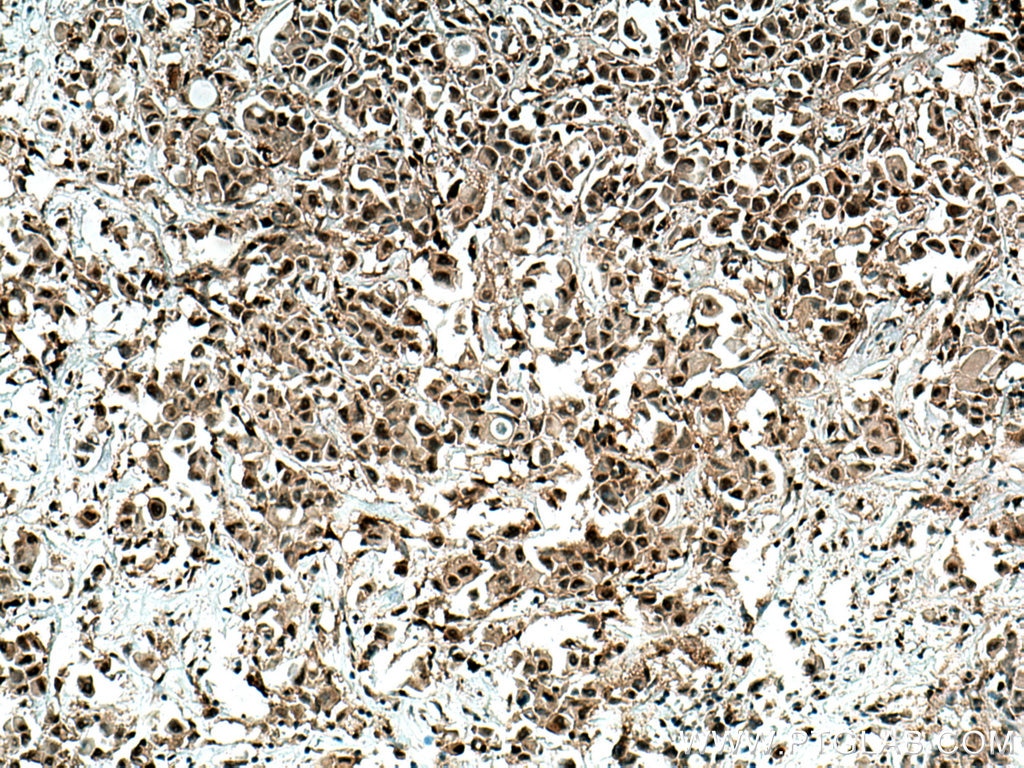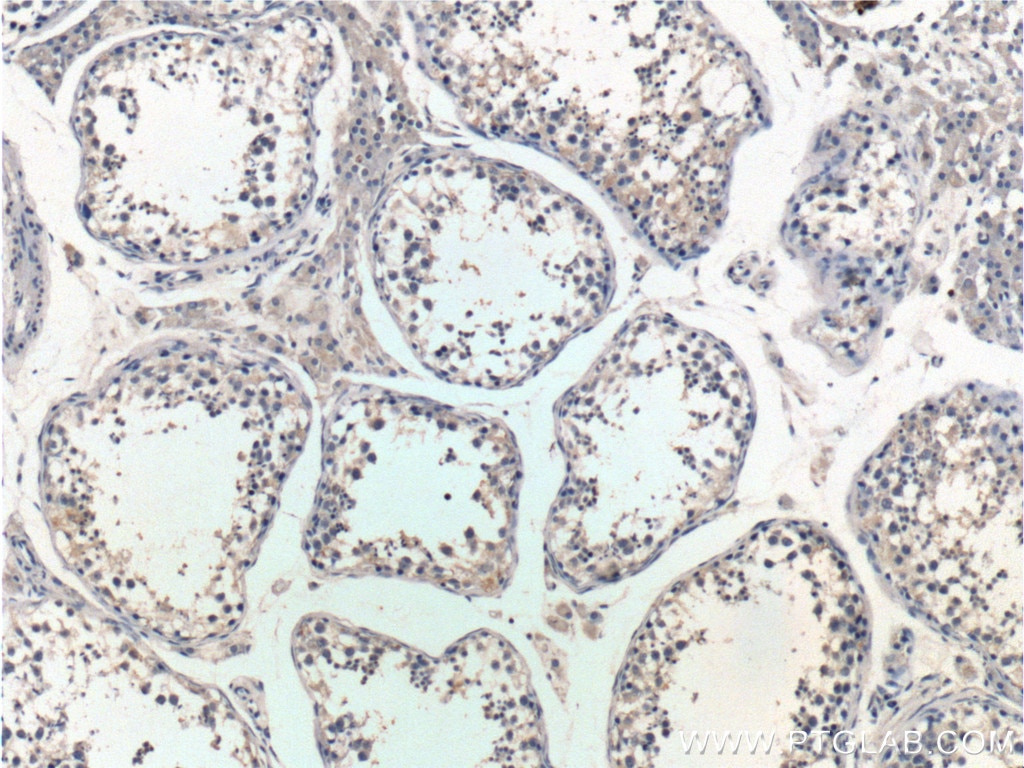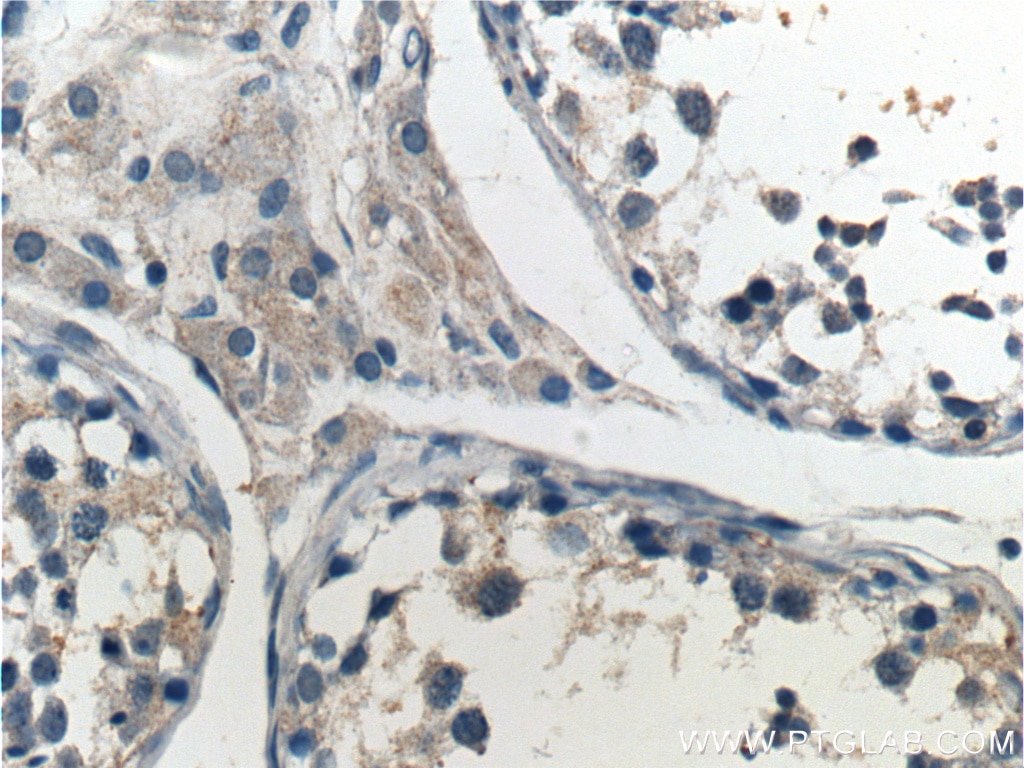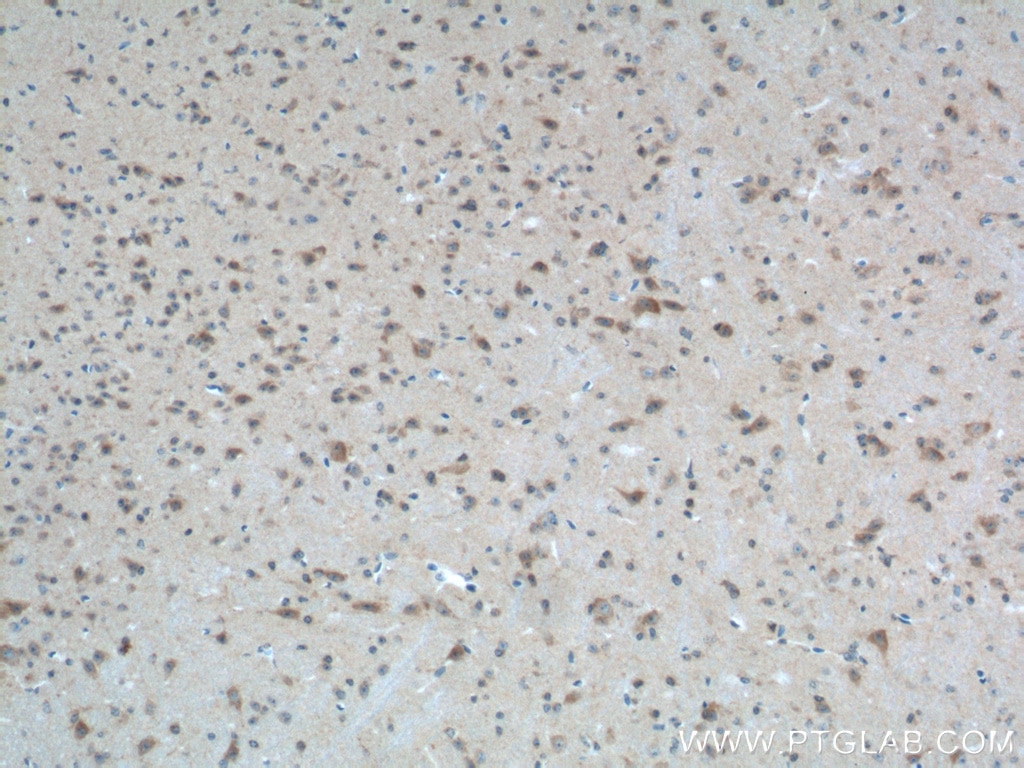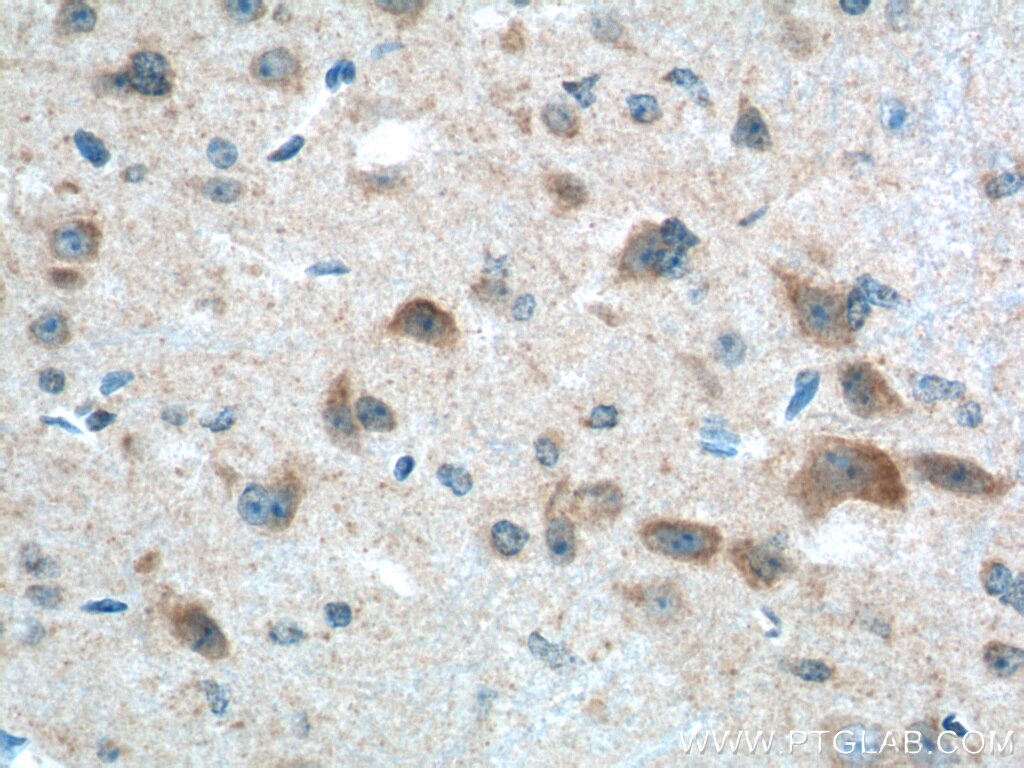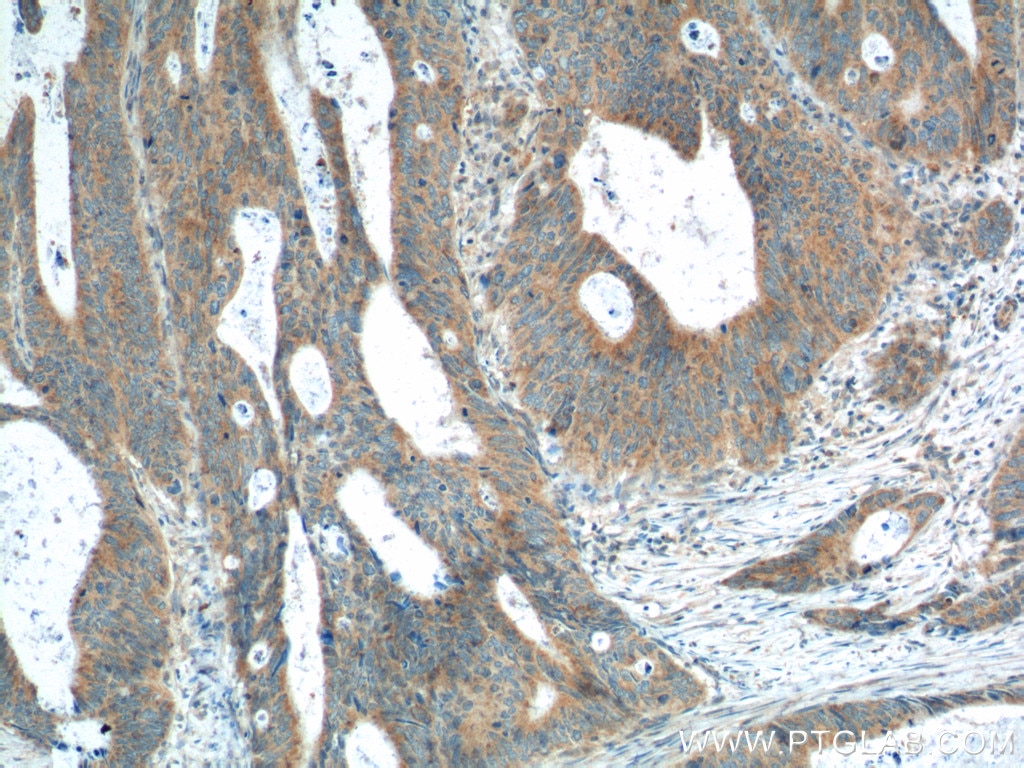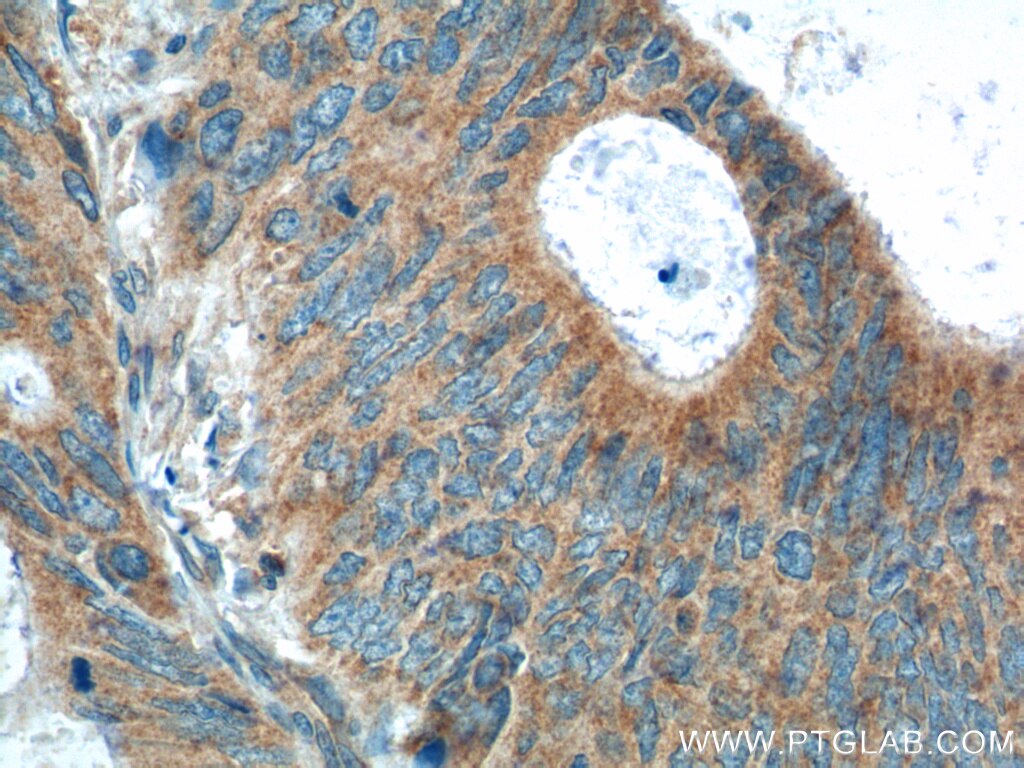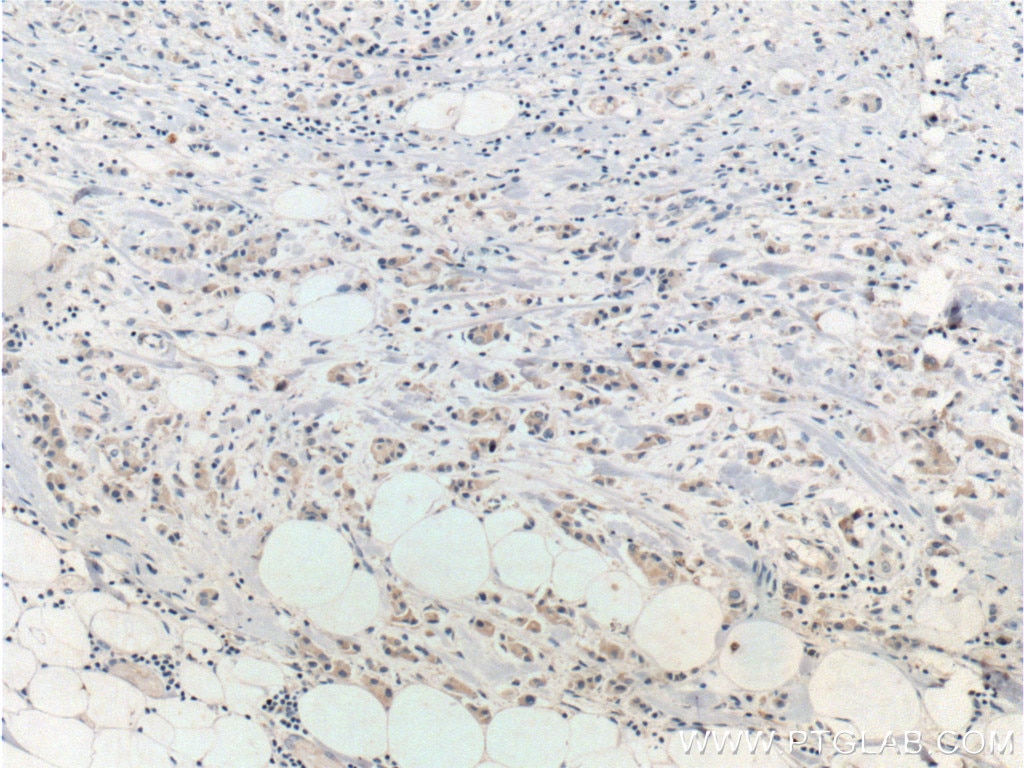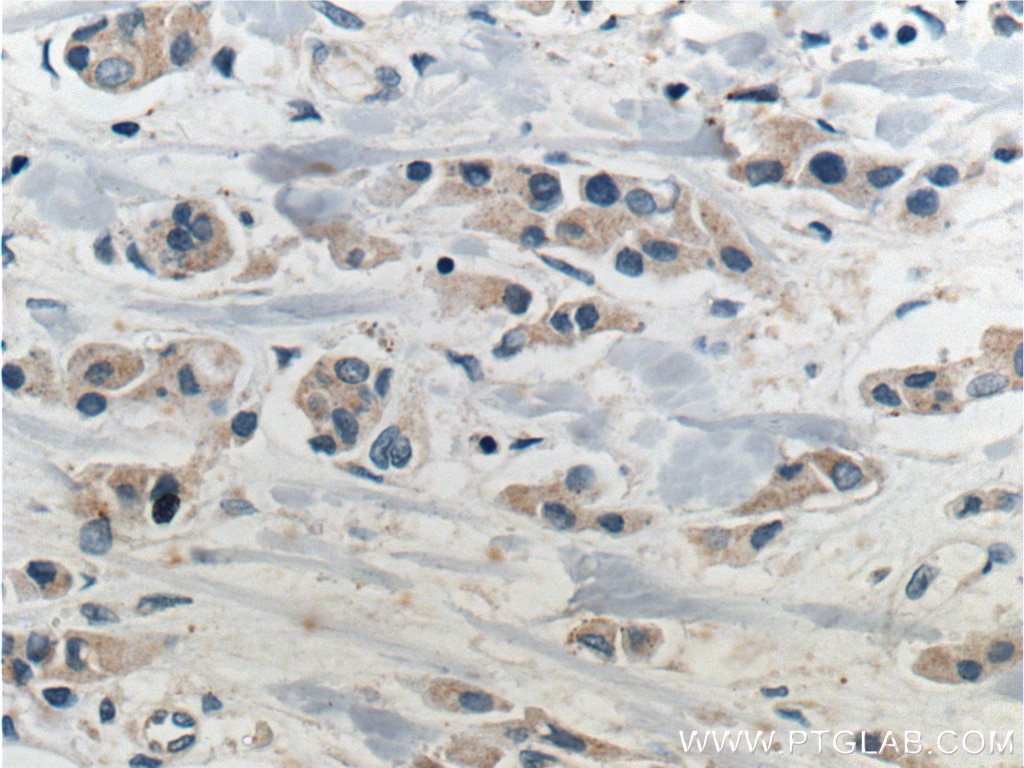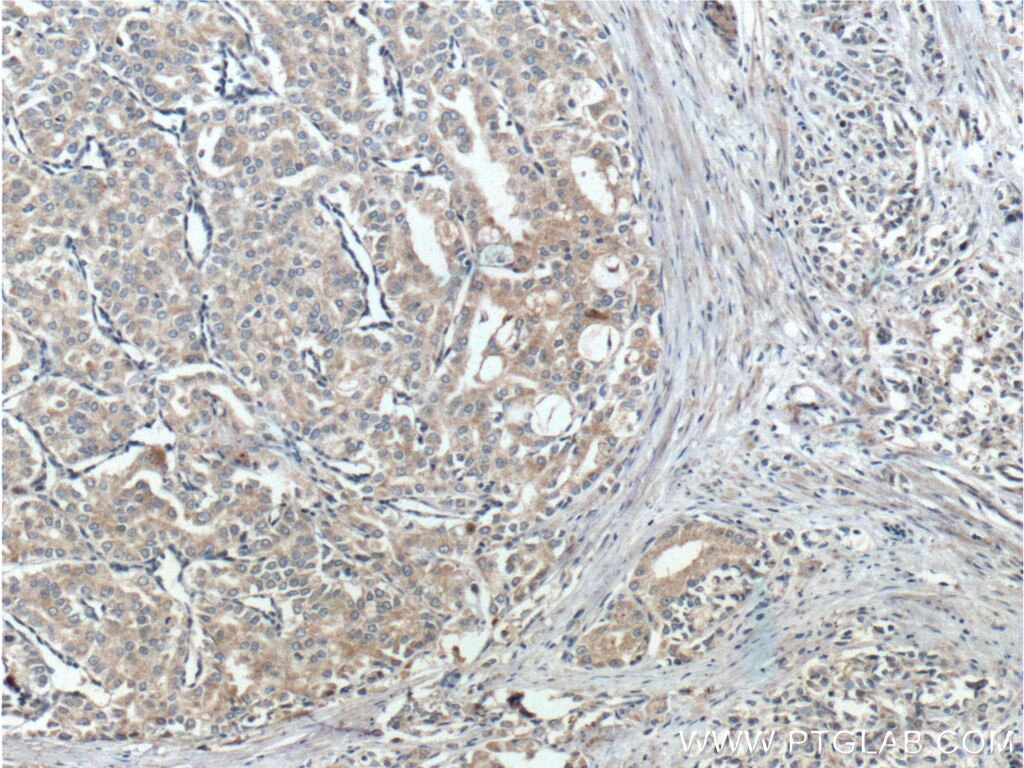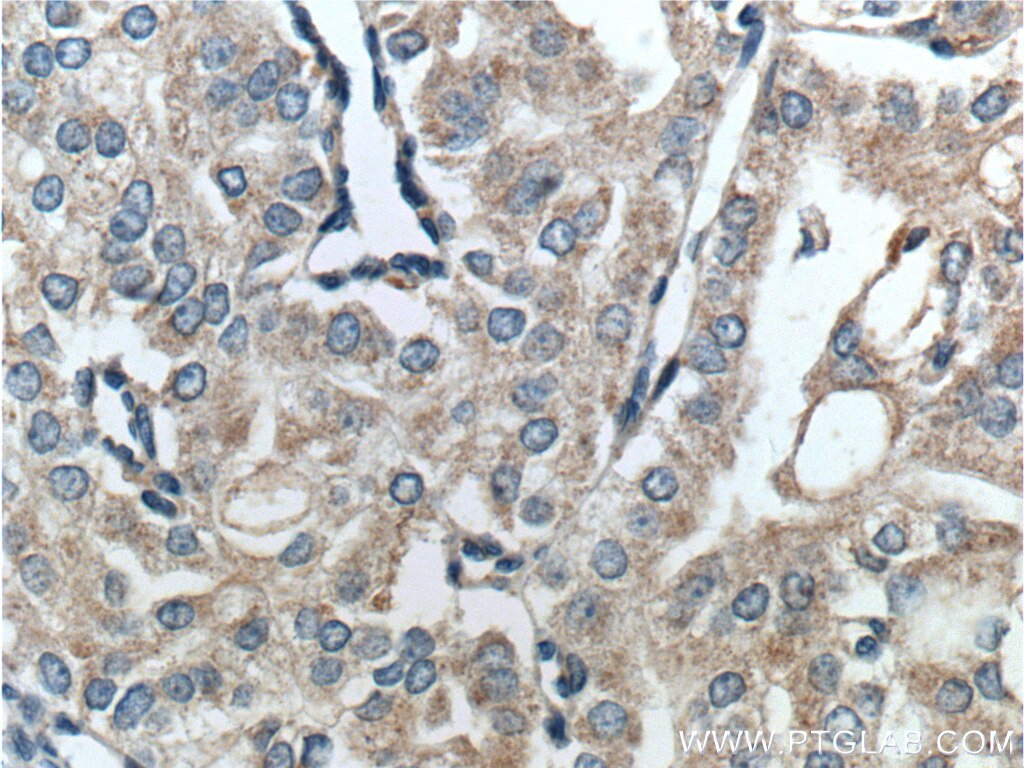Tested Applications
| Positive WB detected in | DU 145 cells, HeLa cells, mouse testis tissue, NIH/3T3 cells, HEK-293T cells, C6 cells, rat testis tissue, MCF-7 cells, LNCaP cells, Jurkat cells |
| Positive IP detected in | DU 145 cells |
| Positive IHC detected in | human breast cancer tissue, human prostate cancer tissue, human testis tissue, mouse brain tissue, human colon cancer tissue Note: suggested antigen retrieval with TE buffer pH 9.0; (*) Alternatively, antigen retrieval may be performed with citrate buffer pH 6.0 |
Recommended dilution
| Application | Dilution |
|---|---|
| Western Blot (WB) | WB : 1:2000-1:10000 |
| Immunoprecipitation (IP) | IP : 0.5-4.0 ug for 1.0-3.0 mg of total protein lysate |
| Immunohistochemistry (IHC) | IHC : 1:500-1:2000 |
| It is recommended that this reagent should be titrated in each testing system to obtain optimal results. | |
| Sample-dependent, Check data in validation data gallery. | |
Product Information
22034-1-AP targets PTEN in WB, IHC, IF, IP, CoIP, RIP, ELISA applications and shows reactivity with human, mouse, rat samples.
| Tested Reactivity | human, mouse, rat |
| Cited Reactivity | human, mouse, rat, pig, bovine |
| Host / Isotype | Rabbit / IgG |
| Class | Polyclonal |
| Type | Antibody |
| Immunogen | PTEN fusion protein Ag17274 Predict reactive species |
| Full Name | phosphatase and tensin homolog |
| Calculated Molecular Weight | 47 kDa |
| Observed Molecular Weight | 55 kDa, 68 kDa |
| GenBank Accession Number | BC005821 |
| Gene Symbol | PTEN |
| Gene ID (NCBI) | 5728 |
| RRID | AB_2878977 |
| Conjugate | Unconjugated |
| Form | Liquid |
| Purification Method | Antigen affinity purification |
| UNIPROT ID | P60484 |
| Storage Buffer | PBS with 0.02% sodium azide and 50% glycerol , pH 7.3 |
| Storage Conditions | Store at -20°C. Stable for one year after shipment. Aliquoting is unnecessary for -20oC storage. 20ul sizes contain 0.1% BSA. |
Background Information
Phosphatase and tensin homolog (PTEN) is an enzyme key in cell cycle regulation and in tumor suppression.
What is the molecular weight of PTEN?
PTEN is composed of 403 amino acid residues with an N-terminal domain with phosphatase activity and a
C-terminal C2 domain that binds phospholipid membranes (PMID:14749127). This antibody can recognize
two isoforms with MWs of 55kDa and 68 kDa.
What is the function of PTEN?
Widely expressed throughout the body, PTEN is found in the cytoplasm and inhibits cell cycle progression
through phosphatase activity. It regulates intracellular levels of phosphatidylinositol-3,4,5-trisphosphate (PIP3)
by catalyzing the dephosphorylation of the inositol ring. This function counteracts the growth-stimulating
activity of the PI3K/AKT signaling pathway and thereby suppresses proliferation. Therefore, in homeostasis,
PTEN promotes chromosome stability and DNA repair (PMID: 24387334).Expression and function can be
regulated by posttranslational modifications, including acetylation for decreased catalytic activity and
ubiquitination for protein degradation, nuclear localization, and inhibition of phosphatase activity
(PMID: 24656806).
What is the role of PTEN in cancer?
PTEN was first identified as a tumor suppressor when mutations or deletions were identified by two separate
groups in a number of different cancer types including gliomas, breast, prostate, and kidney cancer
(PMID: 9090379; PMID: 9072974). Non-inherited, or somatic, mutations in PTEN that lead to a loss of function
in the protein have been shown to drive malignancy in tumors. PTEN hamartoma tumor syndrome (PHTS) is a
group of inherited disorders that occur as a result of autosomal dominant mutations in the PTEN gene. These
disorders include Cowden syndrome, Bannayan-Riley-Ruvalcaba syndrome, and Proteus syndrome. Because of
the constitutive expression of PTEN, the symptoms are varied but often include neurodevelopmental issues and
an increased risk of developing tumors, both benign and malignant (PMID: 26564076).
Protocols
| Product Specific Protocols | |
|---|---|
| WB protocol for PTEN antibody 22034-1-AP | Download protocol |
| IHC protocol for PTEN antibody 22034-1-AP | Download protocol |
| IP protocol for PTEN antibody 22034-1-AP | Download protocol |
| Standard Protocols | |
|---|---|
| Click here to view our Standard Protocols |
Publications
| Species | Application | Title |
|---|---|---|
Nat Commun Myo9b mutations are associated with altered dendritic cell functions and increased susceptibility to autoimmune diabetes onset | ||
Biomater Res High yield engineered nanovesicles from ADSC with enriched miR-21-5p promote angiogenesis in adipose tissue regeneration | ||
Drug Des Devel Ther Network Pharmacology and Experimental Validation to Explore That Celastrol Targeting PTEN is the Potential Mechanism of Tripterygium wilfordii (Lév.) Hutch Against IgA Nephropathy | ||
J Adv Res Salidroside sensitizes Triple-negative breast cancer to ferroptosis by SCD1-mediated lipogenesis and NCOA4-mediated ferritinophagy | ||
J Pineal Res Melatonin increases susceptibility to atrial fibrillation in obesity via Akt signaling impairment in response to lipid overload | ||
Cell Death Dis FBXO32-mediated degradation of PTEN promotes lung adenocarcinoma progression |
